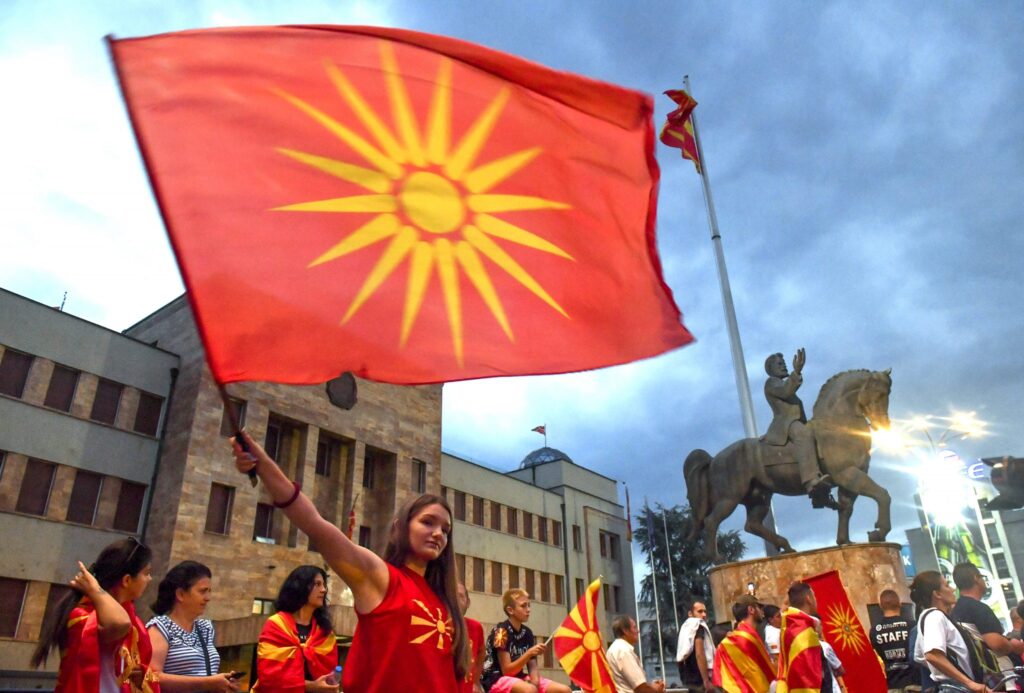
With progress still fragile and vulnerable to Russian interference, the US and EU must remain deeply engaged, advancing Euro-Atlantic integration.
International mediation was indispensable to the recent deal between Bulgaria and North Macedonia, allowing the start of EU accession talks between Skopje and Brussels.
Starting negotiations with North Macedonia is an important step. However, fully integrating North Macedonia into Euro-Atlantic structures will require extensive negotiations that Bulgaria may yet obstruct, given its concerns over cultural, historical and rights issues.
Euro-Atlantic integration is too important for governments to go it alone. Civil societies in both countries need to complement official diplomacy through a dialogue on bilateral issues and confidence building measures that emphasize contact, communication and cooperation.
Marrti Ahtisaari, Finland’s former president, told me that no problem is intractable if the parties have patience and creativity. There is no better example than the dispute between Greece and Macedonia over the “name issue”, which lasted from 1991 to 2019 and resulted in a Greek veto of North Macedonia’s EU and NATO membership. Through the 2018 Prespa Agreement, Skopje changed the country’s name to North Macedonia and Greece lifted its veto on its NATO and EU accession.
However, the saga has another chapter. Bulgaria vetoed North Macedonia’s EU membership in 2020. To break the logjam, Skopje accepted a compromise proposed by France’s President Macron to amend its constitution, recognizing Bulgarians as a state-founding ethnicity. Albanian, Turkish, Vlach, Serbian, Roma, Bosniak and other peoples were similarly recognized.
Thousands protested outside the parliament as North Macedonia voted to end its dispute with Bulgaria, clearing the way for EU talks. Protesters vilified legislators who voted in favour of the French proposal, accusing them of treason.
While Bulgaria’s parliament adopted a resolution that lifted its veto on EU membership talks for North Macedonia, the resolution set stringent preconditions for North Macedonia’s EU membership.
Identity issues are central to the dispute. Bulgaria refuses to recognize the existence of a separate ethnic Macedonian identity and a separate Macedonian language. It demands that the EU avoid using the term “Macedonian language”, and instead use the term “Official language of Republic of North Macedonia”. It insists that the Macedonian language is a Bulgarian dialect and ethnic Macedonians are a subgroup of the Bulgarian nation.
The resolution requires that the draft negotiating framework for North Macedonia should “more clearly reflect the position that nothing in the process of accession of North Macedonia to the EU can be interpreted as Bulgarian recognition of the existence of a ‘Macedonian’ language”.
North Macedonia’s performance on good neighbourliness would remain a “horizontal criterion” throughout the process of EU integration. The European Commission would update the Council on this issue before each intergovernmental conference.
The 2017 Friendship Treaty between North Macedonia and Bulgaria called for the establishment of a joint commission on historical and educational issues. But implementation of the Friendship Treaty languished.
In October 2019, Bulgaria warned that it would block North Macedonia’s EU accession unless its “anti-Bulgarian ideology” was addressed. Bulgaria strongly objected to state-supported or tolerated hate speech and minority claims towards Bulgaria.
Bulgaria agreed a year later to recognize the Macedonian language and Macedonian identity if North Macedonia recognized its historic Bulgarian roots.
North Macedonia politicians across the political spectrum rejected the claim that Macedonians and Bulgarians were a single people, divided by Yugoslav policy during the 20th century.
To break the log jam, Macron proposed that North Macedonia would immediately amend its constitution to recognize Bulgarians in the constitutional preamble as a state-founding ethnicity. Contentious historic and cultural issues would be addressed later.
Macron’s proposal was hotly debated. North Macedonia initially rejected the French proposal, demanding a clear formulation on the Macedonian language in the negotiating framework as well as clear protection of the Macedonia identity. It also rejected historical issues as criteria in the negotiating framework.
However, the allure of EU membership was too great. North Macedonia’s parliament ultimately approved the French proposal with 68 of 120 legislators voting to amend the constitution. European Commission President Ursula von der Leyen congratulated North Macedonia on the vote, which “now paves the way for opening the accession negotiations rapidly”.
Reverberations were felt across the Bulgarian political spectrum. Slavi Trifonov’s “There is Such a People” party withdrew from the governing coalition, leading to the passage of a no-confidence motion in the government on June 22, and plans for early elections in the autumn.
Delegations from North Macedonia and Bulgaria started EU accession talks last week. They approved a protocol on bilateral issues, which serves as a detailed road map for future talks.
It is too soon to celebrate, however. Progress is fragile and could easily unravel if Bulgaria conditions the integration process with additional demands. Issues of identity are most difficult to resolve.
The European Commission must remain engaged through pro-active mediation. It should support interaction between civil society in both countries aimed at building bridges through practical activities with measurable benefit.
The US can also play a critical role. Russia supports nationalist parties in both countries that oppose EU integration and want to undermine NATO unity. The US administration has an interest in negotiations between North Macedonia and Bulgaria that improve relations between both countries and enables their cooperation with Euro-Atlantic structures.
